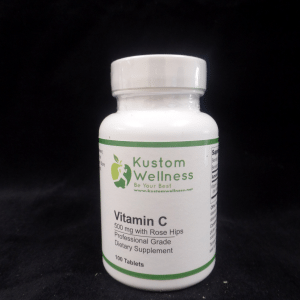Vitamin A & D / 10,000 IU & 400 IU
Vitamin A&D may be useful to ensure optimal levels of these nutrients
DESCRIPTION
Vitamin A & D provides a rich source of two fat-soluble vitamins important for many biological and biochemical systems of the body.
FUNCTIONS
Vitamin A is the name of a group of fat-soluble retinoids, including retinol, retinal, retinoic acid, and retinyl esters. It is involved in immune function, vision, reproduction, and cellular communication. Vitamin A is critical for vision as an essential component of rhodopsin, a protein that absorbs light in the retinal receptors, and because it supports the normal differentiation and functioning of the conjunctival membranes and cornea. Vitamin A also supports cell growth and differentiation, playing a critical role in the normal formation and maintenance of the heart, lungs, kidneys, and other organs.
Another important fat-soluble nutrient is Vitamin D yet, naturally present in very few foods. The active form of vitamin D is called cholecalciferol (a.k.a. D3) and is also produce endogenously when the skin is exposed to sunlight. Vitamin D is well known for promoting calcium absorption, maintain adequate serum calcium and phosphate concentrations, and promote bone growth and remodeling. But new research indicates that vitamin D also has other roles in the bodies including modulation of cell growth, neuromuscular and immune function, and reduction of inflammation. Many genes that regulate cell proliferation, differentiation, and apoptosis are modulated in part by vitamin D. Research indicates that a majority of people are vitamin D deficient.
Call for Pricing
Product Description
Vitamin A&D may be useful to ensure optimal levels of these nutrients
DESCRIPTION
Vitamin A & D provides a rich source of two fat-soluble vitamins important for many biological and biochemical systems of the body.
FUNCTIONS
Vitamin A is the name of a group of fat-soluble retinoids, including retinol, retinal, retinoic acid, and retinyl esters. It is involved in immune function, vision, reproduction, and cellular communication. Vitamin A is critical for vision as an essential component of rhodopsin, a protein that absorbs light in the retinal receptors, and because it supports the normal differentiation and functioning of the conjunctival membranes and cornea. Vitamin A also supports cell growth and differentiation, playing a critical role in the normal formation and maintenance of the heart, lungs, kidneys, and other organs.
Another important fat-soluble nutrient is Vitamin D yet, naturally present in very few foods. The active form of vitamin D is called cholecalciferol (a.k.a. D3) and is also produce endogenously when the skin is exposed to sunlight. Vitamin D is well known for promoting calcium absorption, maintain adequate serum calcium and phosphate concentrations, and promote bone growth and remodeling. But new research indicates that vitamin D also has other roles in the bodies including modulation of cell growth, neuromuscular and immune function, and reduction of inflammation. Many genes that regulate cell proliferation, differentiation, and apoptosis are modulated in part by vitamin D. Research indicates that a majority of people are vitamin D deficient.






Reviews
There are no reviews yet.